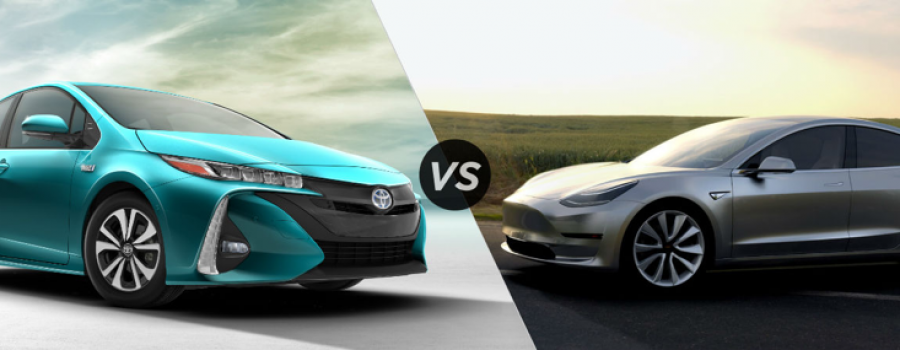The Toyota Prius is rolling up on two decades of production in various model updates and has sold close to 2 million units in the U.S., since its birth. It’s the grandfather of hybrid cars that has stood the test of time and is arguably the most reliable hybrid vehicle. Why has the Prius hybrid been so successful and sold so many units? Well, it’s probably because it checks so many boxes for an everyday, all around practical car.
First, and probably the biggest reason why people love it – is the great fuel range or MPG’s it achieves. Most variants of the Prius reach around 50 mpg today, which is quite remarkable.
Secondly, the practicality of the Prius is second to none. While it’s look’s and design have improved marketably over the years, it’s still not going to win any design awards based on its looks. The Prius is very practical, with its overall smaller size, large cargo space (when rear seats are folded down), yet quick enough even on the highway, while being priced attractively for a practical buyer.
Thirdly, which also ties into the practicality factor, is the reliabililty. The Prius has got to be one of the most reliable bullet proof cars out there. Toyota has a reputation of reliable cars, but the Prius may be one of their best. Although the hybrid technology used in the Prius has been relatively unchanged since its early years, it has proven that it’s very dependable and there are not major concerns for potential issues, even after long term use.
As good as the Prius and other hybrids (GM, Honda, Hyundai, etc.) have been, are they now starting to lose favor with buyers in comparison to all electric vehicles (EV’s)? Up until this point I think each type of car, hybrid vs electric, has probably had two different types of buyers.
Hybrid buyers/owners seem to be very practical and are looking for a highly dependable car, low on maintenance, with overall low running fuel costs. EV owners typically fall into to camps – A) they look for the same factors as the above mentioned hybrid owner, but tend to want to eliminate fossil fuels all together. They would generally buy a car like the Nissan Leaf; not sexy or cool but can get the job done. B) They are early adaptors and definitely want the cool factor, being the first on their block to own the latest and greatest in the car world. They most likely would have a Tesla parked in the driveway.
One misconception that many Tesla owners repeat is, “with an all electric, I’ll never have to pay for gas again,” as if it’s the cheaper route to go because they won’t be using gas anymore. For one, it still requires electricity to charge a Tesla (or other EV’s) which cost money, albeit cheaper than gas, but it’s still not free to charge in most cases. Plus there’s the hassle of charging the car all the time. With the cost of new Tesla Model S at well over $100,000, a Prius owner could pay for gas at the pump a lifetime before he’d ever come close to reaching that figure. Depreciation on EV’s is horrendous as well.
Perhaps with the sale of the Tesla Model 3 the playing field will be a little more even, but the Prius in my opinion is still a tremendous bargain, that doesn’t have such a steep depreciation and still gets tremendous gas mileage, keeping overall fuel cost low. Yes EVs are catching up and they are great cars as well, but the value play would still be the Prius (or another hybrid) at this point.


Leave a Reply
Your email is safe with us.